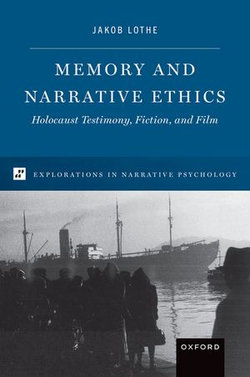As the last survivors of the Holocaust pass away, the challenge of maintaining and extending our knowledge of this critical historical event becomes increasingly urgent. Without the firsthand testimonies of survivors, our understanding of the Holocaust is at risk of becoming diluted or distorted. The narratives that shape our collective memory-whether through testimony, fiction, or film-are essential in preserving the true horror and lessons of the Holocaust. This fading firsthand knowledge could lead to a loss of the ethical and historical gravity of Nazi Germany's mass murder of around six million Jews. Memory and Narrative Ethics presents an original approach that combines narrative studies, memory studies, narrative ethics, narrative psychology, and Holocaust studies to analyze how different forms of narrative preserve Holocaust memory. Through the approach of narrative hermeneutics, and taking into account his own perspective as a European born after the Second World War, Jakob Lothe offers insightful analysis of testimonies, non-fiction films, novels, and film adaptations, and demonstrates how these narratives constructively respond to the ethical challenge of remembering the Holocaust. By understanding and utilizing these diverse narrative forms, we can maintain a vivid, ethical, and comprehensive collective memory of the Holocaust. This ensures that future generations grasp the historical significance and moral lessons of this atrocity, even as direct survivor testimonies soon become scarce.



Share This eBook: